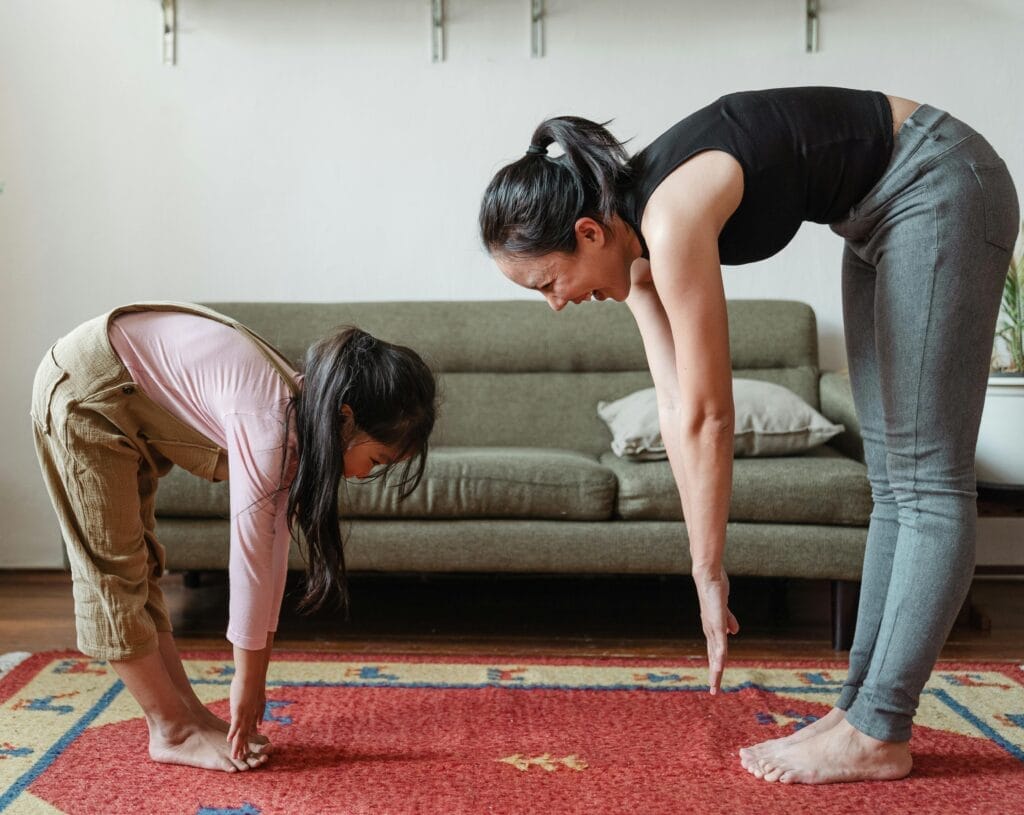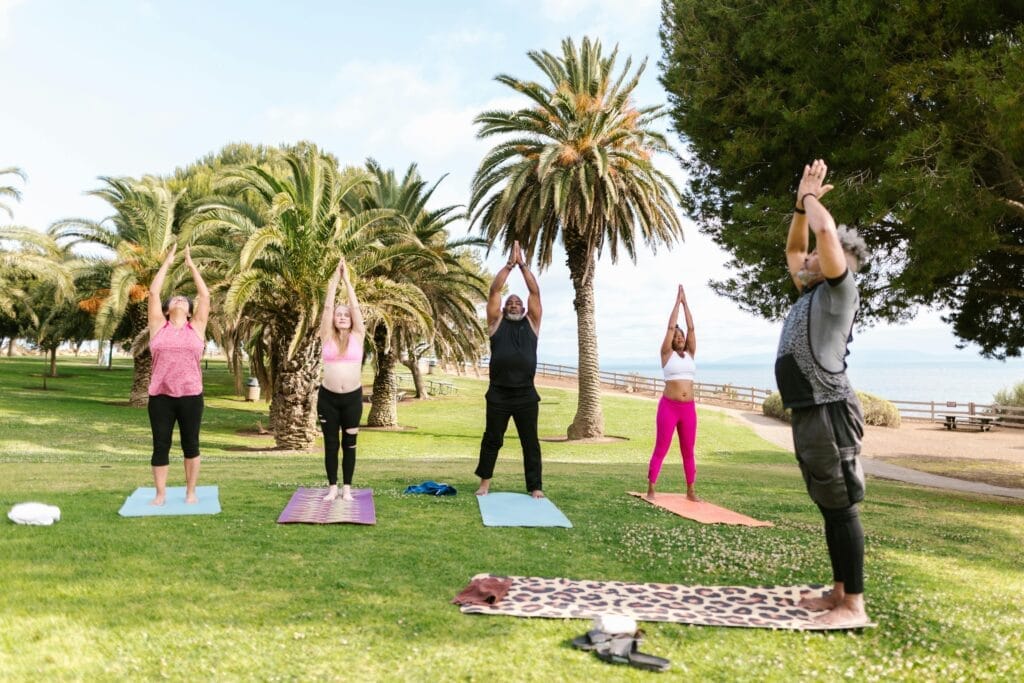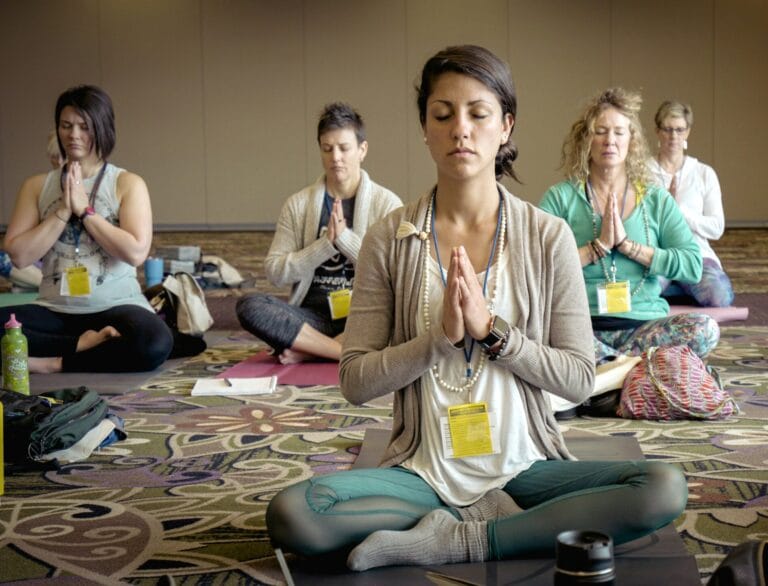Understanding the Essence of Yoga
Yoga is often perceived as a series of physical postures or asanas aimed at enhancing flexibility and strength. However, the essence of yoga transcends mere physicality; it is a comprehensive philosophy that integrates the mind, body, and spirit. Originating in ancient India, yoga encompasses various practices, including physical exercises, meditation, and ethical disciplines, all designed to promote harmony and well-being. This holistic approach is essential in fostering greater mental clarity and emotional balance.
The roots of yoga can be traced back over 5,000 years when it was developed as a means of achieving self-realization and inner peace. Over time, it has evolved into different styles and schools of thought, ranging from Hatha to Ashtanga, Kundalini, and Yin Yoga. Each form offers unique benefits and can be tailored to fit individual lifestyles. Importantly, regardless of the style practiced, yoga fosters mindfulness—a crucial factor in managing stress and achieving mental peace. By encouraging practitioners to focus on the present moment, mindfulness alleviates feelings of anxiety and enhances emotional well-being.
Incorporating meditation and mindful yoga practices within the broader framework of yoga significantly contributes to mental wellness. As practitioners engage in calming yoga poses for a calm mind, they also cultivate deeper states of awareness and tranquility. This synergy between movement and mindfulness allows for better stress management, leading to a sense of inner balance. Additionally, these practices facilitate essential aspects of mental health by nurturing a sense of emotional stability and clarity. Thus, understanding the multifaceted nature of yoga is paramount in harnessing its benefits for mental peace and overall well-being.
Benefits of Yoga for Mental Health
Yoga has long been regarded as a powerful practice that promotes not just physical health but also mental wellness. Numerous studies have highlighted the benefits of yoga for mental health, showcasing its effectiveness in reducing stress, anxiety, and depression. When individuals engage in yoga for mental peace, they frequently experience a significant decrease in physiological indicators of stress, leading to enhanced emotional well-being.
Research indicates that consistent yoga practice can contribute to improved mental clarity and emotional regulation. The integration of mindful yoga for stress management techniques enables practitioners to foster greater awareness of their thoughts and feelings, which can aid in managing your emotional responses. By stepping onto the mat, individuals may find that they can cultivate a greater sense of inner balance, as they learn to observe their thoughts rather than react impulsively.

The benefits of yoga for mental health extend beyond immediate relief; studies suggest that regular practice can enhance resilience, allowing individuals to cope more effectively with life’s challenges. Some yoga poses for a calm mind are designed not only to improve physical flexibility but also to instill a sense of calm and clarity. This tranquility fosters a conducive environment for personal growth and emotional stability, promoting yoga for emotional balance.
Moreover, the practice of meditation and yoga for a peaceful mind plays an essential role in building cognitive resilience. Participants often report a decrease in negative thought patterns and an increase in focus, which can alleviate symptoms of anxiety and depression. As such, incorporating yoga and mindfulness for mental wellness into one’s routine can dramatically enhance overall mental health, leading to a more balanced and peaceful life.
Incorporating Yoga into Daily Life
Integrating yoga into daily life can be both rewarding and accessible, providing a pathway to mental peace and emotional balance. Regardless of your schedule or fitness experience, there are numerous ways to incorporate yoga for mental clarity and stress relief into your routine. Begin with simple poses that can be practiced at home, such as Child’s Pose, which promotes a calm mind, or Seated Forward Bend, which fosters a sense of tranquility.
For those who spend considerable time at the office, consider initiating mindful yoga practices to create moments of stress management throughout the day. Desk stretches, such as Neck Rolls and Seated Cat-Cow, can serve as effective tools to alleviate tension while enhancing emotional well-being. Additionally, incorporating short breathing exercises during breaks can help with mental clarity and rejuvenation.
Creating a family-friendly yoga routine is another effective strategy. Engaging children in playful yoga poses fosters a sense of emotional balance and encourages mindfulness from a young age. Simple poses, such as Tree Pose and Warrior I, can be adapted to make the practice enjoyable and fun for all ages. Utilizing audio or video resources can provide guidance and structure while encouraging participation.

Flexibility in scheduling is essential for a consistent practice. Consider dedicating just 10-15 minutes each day to mindful yoga, integrating it into your morning routine, or unwinding before bed. Structuring your environment to support yoga practices can further enhance your experience. Designate a peaceful space with minimal distractions, where you can nurture emotional wellness through meditation and yoga.
Ultimately, the incorporation of yoga for mental health into your daily life can create a profound shift in your overall well-being. Embrace the journey with kindness and patience as you explore the best yoga for peace of mind that suits your unique needs.
Creating a Sustainable Yoga Practice
Establishing a sustainable yoga practice is essential for maximizing its benefits for mental peace and emotional well-being. To begin, it is crucial to set realistic goals that cater to your individual needs and lifestyle. Instead of striving for perfection or an ambitious regimen, consider starting with achievable targets, such as practicing yoga for a short period each day or participating in weekly sessions. This approach not only helps build confidence but also fosters a sense of accomplishment that can contribute to mental clarity and reduce stress.
Tracking progress is another effective method to maintain motivation. Keeping a journal or using a yoga app can help you reflect on your experiences and both physical and mental transformations over time. Observing the improvements in your ability to handle stress or achieve emotional balance can strengthen your commitment to a consistent practice. Moreover, recognizing the benefits of yoga for mental health as they unfold allows you to appreciate the journey toward inner peace and stability more fully.
One significant challenge many people face in establishing a consistent yoga practice is overcoming obstacles such as a lack of time or motivation. It’s essential to recognize these barriers and develop strategies to address them. For example, integrating yoga into your daily routine, even for just a few minutes, can make it more manageable. Additionally, incorporating mindful techniques into your practice can help with stress management and enhance your overall experience.

Community support plays a critical role in maintaining motivation and accountability. Joining a local class, participating in online forums, or engaging with social media groups centered on yoga for mental peace fosters connection with like-minded individuals. This collaboration encourages continuous learning and personal growth, reinforcing the understanding that yoga is a lifelong practice contributing to emotional wellness. By seeing yoga as a journey rather than a destination, you are more likely to cultivate a routine that is sustainable and fulfilling.






